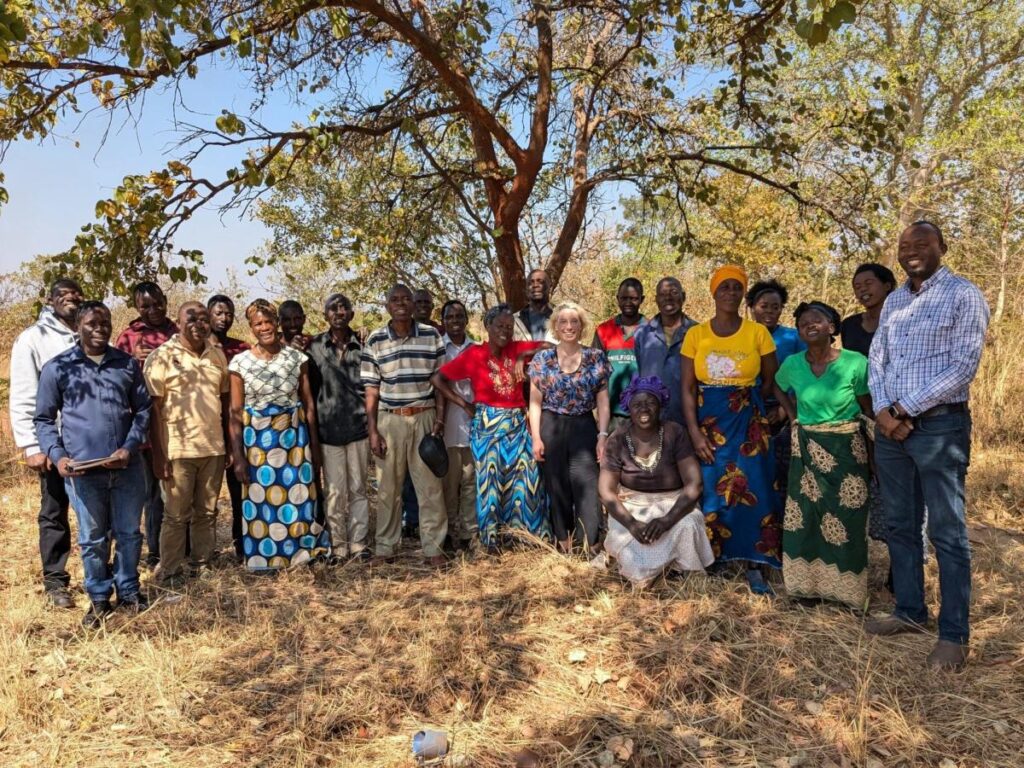Aid by Trade Foundation (AbTF) held group discussions with CmiA farmers in Zambia to investigate where they see ecological changes and what actions they are taking in response.
The group of small-scale CmiA farmers consisted of 46% men and 54% women, with 66% living in the region since birth and 34% having lived in the region for 10 to 20 years.
“The discussions focused on addressing challenges and solutions together with farmers in Zambia,” says Nina Schöttle, AbTF’s monitoring and evaluation project manager. She explained that the foundation’s key objectives include halting biodiversity loss and increasing the resilience of African smallholder farmers through comprehensive, locally-led measures.
According to the study, biodiversity in rural Africa has declined, while deforestation, poaching and settlement expansion have ‘severely’ affected many wildlife, even leading to the extinction of some species, and many human-animal conflicts in the have stirred up wildlife. .
A water shortage in local rivers was also identified as an urgent problem.
AbTF highlighted that farmers in the discussion group described the signs of these ecological shifts in their environments, including the absence of certain fungi in forests, indicating reduced biodiversity, changes in soil structure and color indicating poorer soil quality, and the proliferation of certain weeds. such as witchweed and ragwort, an indication of changes in biological balance.
They also noted fluctuating temperatures and irregular rainfall patterns, which have reportedly disrupted local agricultural cycles.
Highlighting the impact of biodiversity decline on the fields, AbTF stated that soil fertility has deteriorated, resulting in lower yields: “In the past, good results could be achieved without fertilizer, but today this is more challenging. Wildfires and the use of herbicides have reduced the presence of beneficial soil organisms such as earthworms, which help break down organic matter.”
Measures taken to promote biodiversity
AbTF noted that the group discussions with small-scale farmers made it clear that the way cotton fields are managed has a “significant” impact on soil health and biodiversity in their environment.
The foundation explained that to promote biodiversity, farmers have adopted practices such as crop rotation and integrated pest management, while minimizing chemical pesticides and herbicides in favor of organic alternatives. They also avoid tilling the soil to maintain its quality, and use compost and organic fertilizers such as cow dung to improve its quality.
AbTF pointed out that these sustainable agricultural practices align with the principles of the CmiA standard, which has long emphasized climate and environmental protection. The organization regularly shares these practices with small-scale farmers through training programs, with the aim of increasing their resilience to climate change and improving their long-term livelihoods.
Recently, AbTF’s annual report on the verification and implementation of CmiA, positive progress has been made since 2022.
“AbTF, Zambian farmers tackle biodiversity and climate change through sustainable agriculture” was originally created and published by Simply stylea brand owned by GlobalData.
The information on this site has been included in good faith for general information purposes only. It is not intended to amount to advice on which reliance should be placed and we make no representation, warranty or guarantee, express or implied, as to its accuracy or completeness. You must obtain professional or specialist advice before taking or refraining from any action on the basis of the content on our site.







